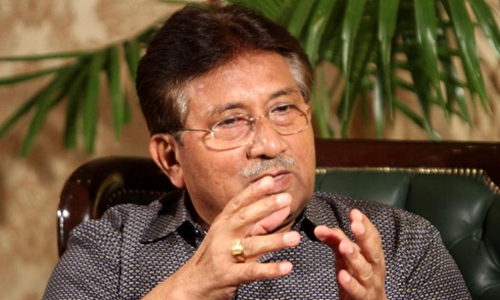A Pakistan court on Monday annulled the death sentence handed to former military leader Pervez Musharraf, ruling that the special court which had found him guilty of treason last year was unconstitutional, a government prosecutor told AFP.
The original ruling had marked the first time a former leader of the armed forces had faced such a sentence for treason in Pakistan, where the military maintains strong influence.
It caused a wave of controversy, with Musharraf – exiled in Dubai – slamming it as a “vendetta” and the military expressing its disappointment.
A High Court in the eastern city of Lahore ruled it “illegal” on Monday.
“The filing of the complaint, the constitution of the court, the selection of the prosecution team are illegal, declared to be illegal… And at the end of the day the full judgment has been set aside,” the prosecutor representing the government, Ishtiaq A. Khan, told AFP.
“Yes, he is a free man. Right now there is no judgment against him any longer.”
Musharraf’s lawyer, Azhar Siddique, also told media outside the court in Lahore that it has “nullified everything.”
The prosecution now has the option to file a new case against Musharraf with the approval of the federal Cabinet.
The treason trial – which began in 2013 and is just one of several involving Musharraf – centered on his decision to suspend the constitution and impose emergency rule in 2007.
Musharraf first took power after ousting prime minister Nawaz Sharif in a coup in 1999.
He resigned in August 2008 in the face of impeachment proceedings by the new governing coalition and went into exile.
Musharraf returned to Pakistan in 2013 in an attempt to contest elections, but was barred from taking part in the polls and from leaving the country as a barrage of legal cases mounted.
The travel ban against him was finally lifted in 2016, and he traveled to Dubai for medical treatment, where he has been ever since.
Former Pakistani President Pervez Musharraf addresses a press conference in southern Pakistani port city of Karachi on March 31, 2013. (Xinhua/Arshad)


